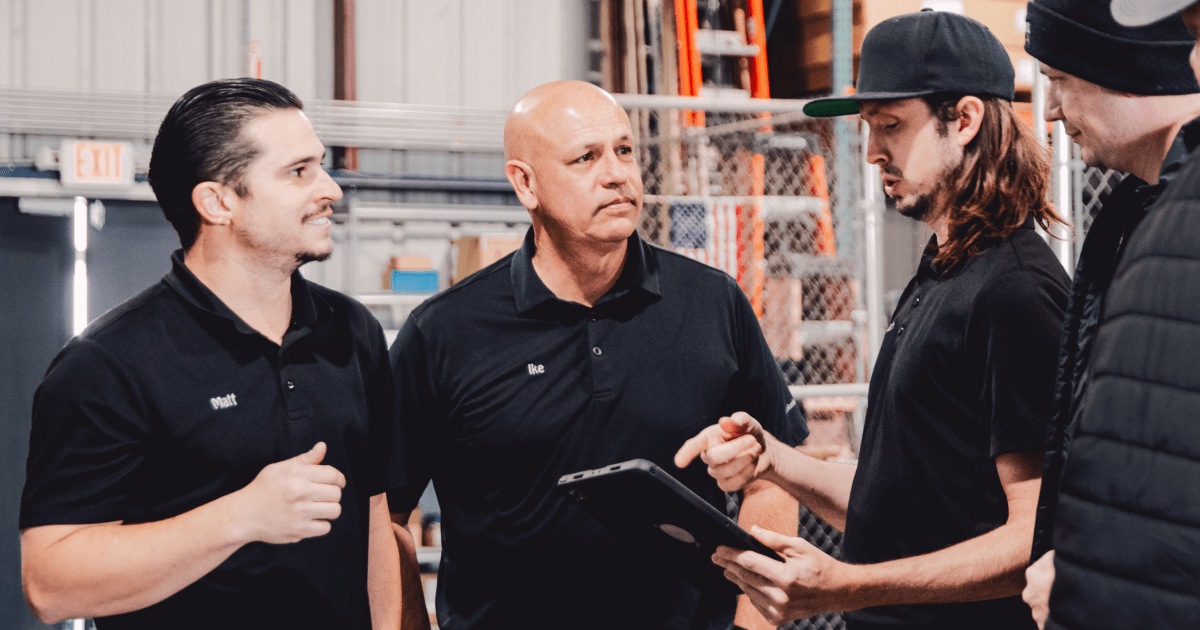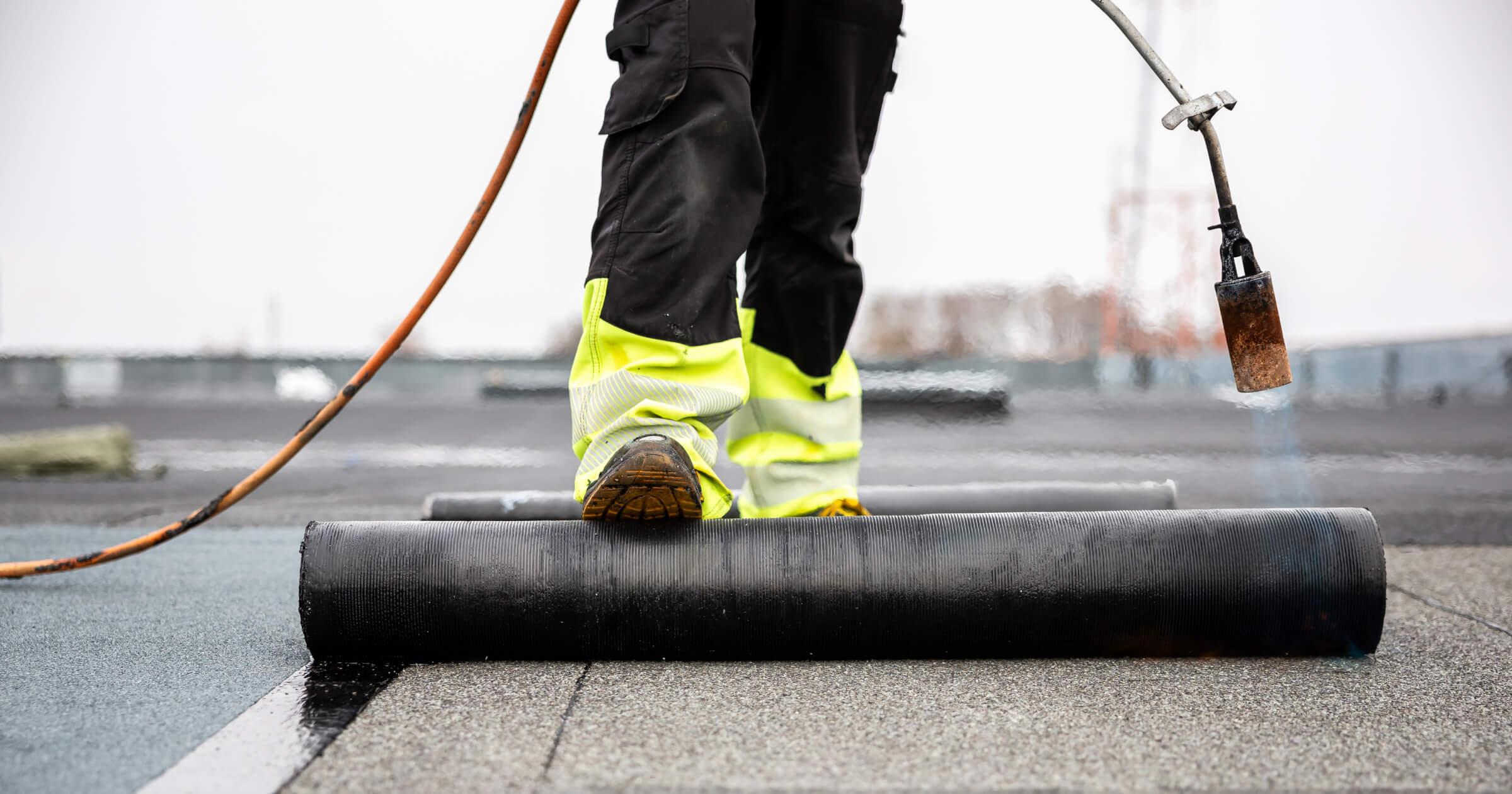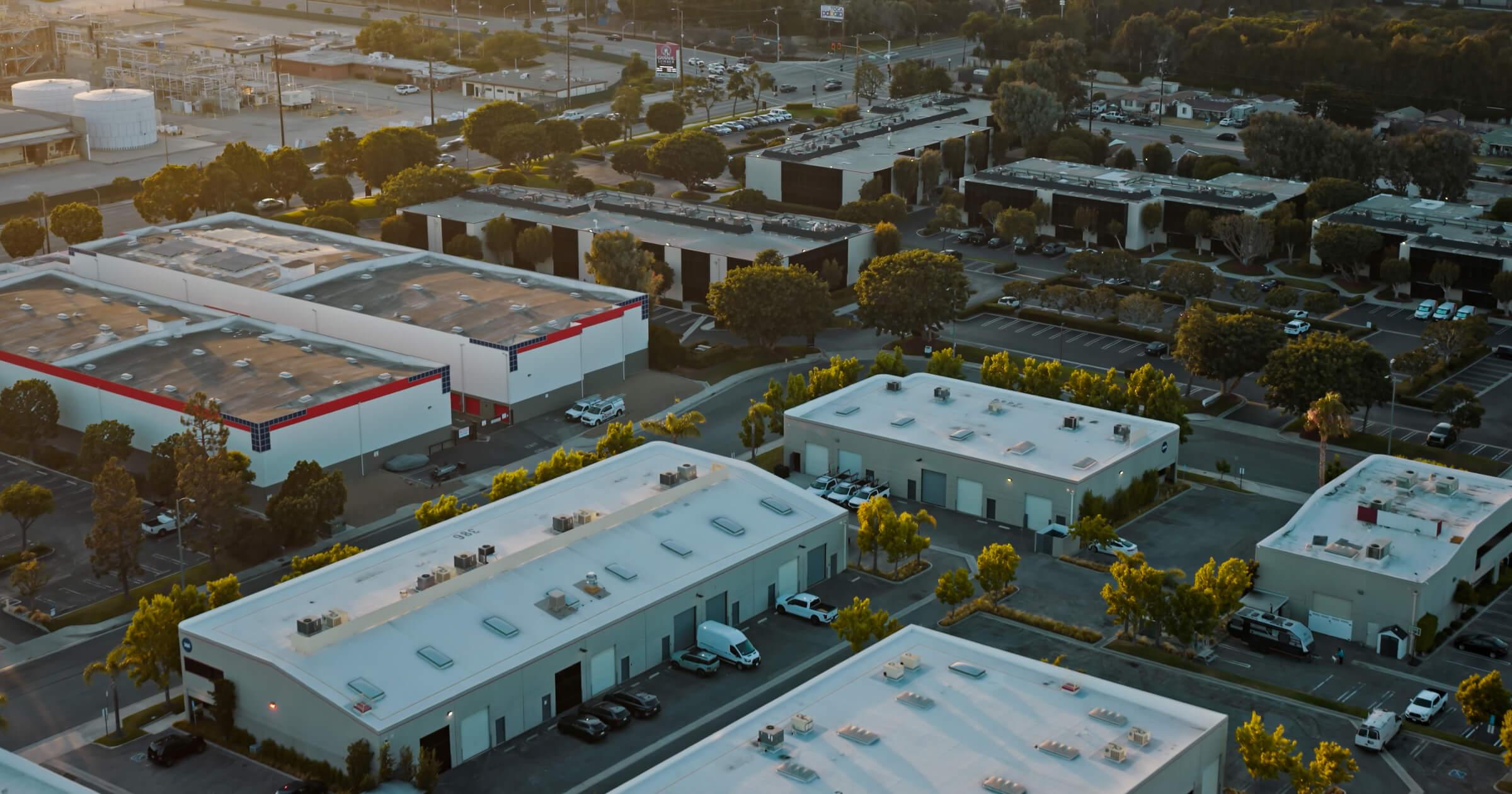Introduction
Picture this: It's 9:47 AM on a Tuesday, and David Martinez, facility manager at a 240,000 square foot distribution center, gets his third sales call of the morning.
The first rep launched straight into a 4-minute pitch about "industry-leading HVAC maintenance packages" without alluding to or even asking a single question about David's current challenges.
The second caller opened with "I'm in your area today and wanted to stop by" – despite David's facility being 90 minutes outside the rep's territory.
Meanwhile, across town, Sarah Chen takes a different approach. Before calling the same type of facility, she spent 5-10 minutes researching the property's permit history, recent equipment installations, and seasonal maintenance patterns. When she calls David's counterpart at a similar facility, her first question isn't about budget or timeline.
"I noticed your facility upgraded to a new rooftop unit last spring," she says. "How's that been performing during these summer heat spikes we've had? I ask because we've helped three other distribution centers in your area optimize their cooling efficiency after similar upgrades."
One approach feels like an interruption. The other feels like help.
Here's what separates top-performing commercial services reps from the struggling majority: they've stopped selling and started consulting. According to Klenty, the average reps make around 50 calls a day trying to "pitch and pray," consultative sellers focus on fewer prospects but convert an average of 15% of prospects compared to the 1-2% that come from a pray and spray approach, according to WeSuite.
This means a consultative approach leads to between 10x and 15x more opportunities to turn conversations into actual partnerships.
This article will walk you through exactly how to make that shift – from being seen as another vendor to becoming a trusted advisor that facility managers actually want to talk to.
What is Consultative Selling in Commercial Services?
Consultative selling in commercial services means approaching prospects as a problem-solving advisor rather than a product pusher. Instead of opening conversations with what you're selling, you start by understanding what challenges they're facing with their current HVAC systems, building automation platforms, cleaning protocols, roofing maintenance, or energy costs (whichever space is most relevant to your business).
Think of it as the difference between a doctor and a pharmaceutical sales rep. The pharma rep wants to tell you about their latest drug. The doctor asks about your symptoms, runs diagnostics, and only then recommends treatment.
In commercial services, consultative selling looks like:
Traditional, Transactional Approach: "We provide comprehensive janitorial services for office buildings like yours. When can I stop by to show you our competitive pricing?"
Consultative Approach: "I've worked with several medical office buildings in your area, and one challenge that keeps coming up is maintaining infection control standards while managing costs. Is this a challenge that your facility is currently facing?"
The traditional rep is trying to get an appointment. The consultative rep is starting a conversation about real business challenges.
Joe Girard, recognized by the Guinness Book of Records as the "World's Greatest Salesman," built his record-breaking career on this principle. Nearly two-thirds of his sales came from loyal customers because he focused on building relationships rather than making one-time transactions. As Girard put it, he didn't care if someone bought from him today – he wanted them to buy everything from him in the future.
That mindset shift changes everything about how you approach prospects.
Why Hard Selling No Longer Works (The Sales Fatigue Reality)
Online “sales influencers” will tell you, “Always be closing.” Push harder, get to yes, force a decision.
The problem is your prospects are exhausted from this approach, so they ignore all outreach that feels like a “fast pitch.”
Now I personally get between 10 and 15 sales calls per day, and even more than that in emails, texts, and other sales-based outreach. Your average facility manager in a large market (like Chicago or New York probably receives even more, most following the same tired script: introduction, value proposition, request for a meeting. By the third "We're the leading provider of..." pitch, they've mentally checked out.
This sales fatigue isn't just anecdotal – it's measurable. Recent studies show that decision-makers now require an average of at least 5-7, sometimes closer to 8-10, meaningful touchpoints before agreeing to a sales meeting, up from 3-4 touchpoints just a few years ago.
They're not being difficult; they're being protective of their time.
Here's what's driving this shift:
Information Overload: Facility managers can research vendors, read reviews, and compare pricing online before ever speaking to a sales rep. They don't need you to educate them about your industry – they need you to understand theirs.
Increased Skepticism: After years of vendors over-promising and under-delivering, prospects approach new sales conversations with their guard up. Generic pitches trigger immediate dismissal.
Competing Priorities: Your HVAC proposal isn't competing just against other HVAC companies. It's competing against every other initiative on their facility improvement budget - from security upgrades to LED retrofits to parking lot repairs.
The hard-selling approach assumes prospects are waiting for you to convince them they have a problem. Consultative selling recognizes that they already know their problems – they're waiting for someone who understands those problems well enough to help solve them.
This is where modern sales intelligence solutions like Convex become critical for sales. When you approach a prospect with genuine insights about their property - like recent permit filings, equipment age, or energy usage patterns - you immediately separate yourself from the “generic pitch” army they’ve become so good at dismissing.
5 Core Principles of Consultative Selling for Field Service
1. Research the Property and Industry Challenges First
Before you pick up the phone, spend 10-15 minutes understanding the specific facility you're calling. What type of building is it? When was it constructed? What equipment do they currently have? What compliance requirements do they face?
This isn't about stalking - it's about preparation. When you can reference specific details about their property, you immediately demonstrate that this isn't a mass outreach effort.
For example: "I noticed your building was constructed in 1987. Buildings from that era often have R-22 refrigerant systems that are becoming expensive to maintain. How has that affected your HVAC budget planning?"
2. Ask Diagnostic Questions, Not Leading Questions
Leading questions try to guide prospects toward your solution: "Wouldn't you like to reduce your energy costs by 30% (or whatever your products can provide)?"
Diagnostic questions uncover real challenges: "What's your biggest frustration with your current energy management approach?"
The difference is intent. Leading questions serve your agenda. Diagnostic questions serve their needs.
3. Listen for Problems, Not Buying Signals
Traditional sales training teaches you to listen for phrases like "What's your pricing?" or "When could you start?" These feel like buying signals, but they're often just due diligence questions.
Consultative sellers listen for problems: "Our current vendor is fine, but we've had some consistency issues during busy periods" or "The system works, but we're always dealing with small issues that add up."
These aren't buying signals – they're problem signals. And problems are what you solve, not just what you sell to.
4. Position Yourself as Advisor, Not Vendor
Vendors provide products and services. Advisors provide solutions and insights. The language you use shapes how prospects perceive your role.
Instead of: "We offer comprehensive maintenance programs." Try: "Based on what you've described, there are three approaches other facilities in your situation have used successfully."
Instead of: "Our team has 15 years of experience." Try: "We've seen this exact challenge with medical facilities your size, and here's what typically works best."
5. Focus on Their Success Metrics, Not Your Quota
Every conversation should center on what success looks like for them, not what a sale looks like for you. What are they trying to achieve? What would make their job easier? What would make their boss happy?
When you genuinely care about their success, the sale becomes a natural byproduct of helping them achieve their goals.
But how do I get access to the data required to take this approach? This is where tools like Convex can shift the conversation from, “Do you need x service?” to, “I see that you recently pulled permits for (X), have you figured out how to solve (Y) problem during the buildout?”
If you’re interested in learning more about how Convex transforms the prospecting process for commercial services, including prospecting, business development, and sales teams, reading “Unlocking Sales Efficiency with Buying Signals and Intent Data” can help you understand how adopting a signal-based approach can revolutionize your messaging to generate more replies from prospects.
The Consultative Sales Process: From Research to Partnership
Let's walk through what consultative selling looks like in practice, comparing the traditional approach with the advisory approach:
Scenario: Reaching out to a 150,000 square foot manufacturing facility about HVAC maintenance services.
Traditional Approach - Monday Morning:
Mike pulls up his list of 50 prospects and starts dialing. When he reaches Tom, the facility manager:
"Hi Tom, this is Mike from ABC HVAC Services. We specialize in commercial HVAC maintenance for manufacturing facilities like yours. I'd love to show you how we can reduce your maintenance costs while improving system reliability. Do you have 15 minutes this week for me to stop by?"
Tom's response: "We're happy with our current vendor, but thanks."
Mike moves on to the next call.
Total conversation: 45 seconds. Outcome: Nothing.
Consultative Approach - Same Monday:
Before calling, Sarah spends 12 minutes researching Tom's facility. She discovers it's a food processing plant built in 1994, with three major rooftop units installed between 2018-2020. The company recently received an FDA compliance citation for temperature control in its cold storage area.
When she calls Tom:
"Hi Tom, this is Sarah Chen from XYZ Building Solutions. I was researching food processing facilities in the area and noticed your recent equipment upgrades. I imagine maintaining precise temperature control is critical for FDA compliance, especially with the newer regulations. What's been your experience managing that balance between efficiency and compliance requirements?"
Tom responds: "Actually, that's been a challenge. Our current maintenance company is familiar with HVAC, but they lack a thorough understanding of food safety requirements. We've had a couple of temperature fluctuations that made us nervous."
Sarah: "That makes complete sense. Food processing facilities have unique requirements that general HVAC companies often miss. Can you walk me through what happened with those temperature fluctuations? I ask because we've helped three other food processors in similar situations, and there are usually some straightforward solutions."
The conversation continues for 10 minutes. Tom shares specific challenges, Sarah provides insights from similar facilities, and they schedule a facility walkthrough for the following week.
Total conversation: 15 minutes. Outcome: Qualified opportunity with a prospect who now sees Sarah as someone who understands the challenges that he’s facing.
Professional Insight:
What’s crazy is that Sarah used Convex and 1-2 publicly available databases to get this information - Tom called a “cold lead” from a list. Sarah has booked an appointment, while Tom needs to call 98 more facilities (as per our cold outreach data in the first section) to schedule an appointment.
The Key Differences:
Preparation: Sarah invested 12 minutes researching vs. Mike's zero preparation
Opening: Sarah referenced specific, relevant details vs. Mike's generic value proposition
Questions: Sarah asked about challenges vs. Mike asking for time
Value: Sarah provided immediate insights vs. Mike promising future value
Outcome: Sarah created a business conversation vs. Mike, triggering a polite rejection
This approach requires more upfront investment per prospect, but generates significantly higher conversion rates. Sarah might make 15 calls per day instead of Mike's 50, but she'll book more qualified meetings and close more deals.
Modern property intelligence tools can streamline this research process, providing insights about building characteristics, equipment age, permit history, and compliance requirements in minutes rather than hours. When combined with generative AI for personalized messaging, this creates a scalable way to approach every prospect with genuine, relevant insights.
Key Outcomes: Why "Helping First" Wins More Business
The results of shifting to consultative selling in commercial services are measurable and significant. Here's what changes when you prioritize helping over selling:
Conversion Rate Improvements
According to McKinsey, companies that train their commercial services teams on consultative selling typically see 20% improvement in qualified opportunity conversion rates. Instead of needing 100 cold calls to generate 3 meetings, consultative sellers might generate the same 3 meetings with 60 calls – but those meetings are with more engaged, qualified prospects.
Longer Sales Cycles, Higher Deal Values
Consultative selling often extends the initial sales cycle by 2-3 weeks, but according to Revenue.io, it increases win rates, offers higher deal values, and increases customer loyalty. In short, when prospects see you as an advisor rather than a vendor, they're more likely to discuss comprehensive solutions rather than just immediate problems.
Customer Lifetime Value
This is where the Joe Girard principle really pays off. Customer loyalty also leads to higher lifetime value because they view you as their go-to resource for facility challenges. Instead of going to market every time they need services, they’ve had a great experience with you, so they call you first.
Real-World Case Study: Moreno & Associates
Moreno & Associates, a Bay Area building maintenance and janitorial company, demonstrates exactly how consultative selling transforms commercial services prospecting. When Kyleigh Moreno took over business development for the 30-year-old family company, she was stuck in the traditional approach: spending 4-5 hours manually searching Google and entering notes into Excel spreadsheets.
Her breakthrough came when she shifted to a research-first, consultative approach. Instead of casting a wide net with generic pitches, she used Convex to begin filtering from 700,000 potential contacts down to targeted groups of about 100 prospects that matched their ideal customer profile.
Their consultative methodology:
Property intelligence first: Research building characteristics, square footage, permits, and ownership status before any outreach
Decision-maker mapping: Target specific roles like facilities managers and operations directors, rather than general contacts
Reference-based positioning: Use adjacent properties they already service as credibility builders ("We handle the building next door and can provide that customer as a reference")
Owner-direct approach: Focus on owner-occupied properties to bypass gatekeepers and reach decision-makers faster
The efficiency transformation:
Prospecting time: Reduced from 4-5 hours to 1 hour per session (80% time savings)
Targeting precision: From mass outreach to focused campaigns with higher-quality prospects
Team adoption: The Entire 220+ employee organization validated the consultative approach as "an important asset to helping us succeed."
Kyleigh's insight perfectly captures the consultative philosophy: "I prefer not to cast such a wide net because I might get contacts I don't need as opposed to finding and working with smaller groups that are more in line with our target customer profile."
Why This Works in Commercial Services
Commercial services are inherently consultative purchases. Facility managers aren't buying products; they're buying solutions to operational challenges. When you demonstrate understanding of those challenges before trying to sell anything, you align with how they actually want to buy.
The businesses that struggle with consultative selling are typically those still thinking transactionally. They see longer conversations and extended sales cycles as inefficiencies rather than investments in higher-value relationships.
The companies that thrive understand that one qualified prospect who sees you as an advisor is worth more than ten prospects who see you as just another vendor option.
Conclusion
The most successful commercial services reps have figured out what Joe Girard knew decades ago: you don't build a sales career by convincing people to buy from you today. You build it by becoming someone they want to keep buying from for years to come.
Consultative selling isn't about being nicer or more patient with prospects. It's about fundamentally changing your approach from interrupting their day with your agenda to starting conversations about their real challenges.
This shift requires more upfront investment - research time, longer conversations, and extended sales cycles. But it generates higher conversion rates, larger deal values, and customers who become long-term partners rather than one-time transactions.
The commercial services landscape is becoming more competitive every year. The companies that will thrive are those whose teams are seen as trusted advisors rather than just another option in a crowded vendor marketplace.
Ready to see how property intelligence can help your team start more consultative conversations with qualified prospects?
Schedule a Demo to see Convex in action and discover how leading commercial services companies are using building-specific insights to approach every prospect as a knowledgeable advisor from the very first conversation.
Share





